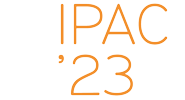Speaker
Description
The computation of residual gas density profiles in particle accelerators is an essential task to optimize beam pipes and vacuum system design. In a hadron collider such as the LHC, the beam induces dynamic effects due to ion, electron and photon-stimulated gas desorption. The well-known VASCO code developed at CERN in 2004 was already used to estimate pressure profiles in steady state conditions. Nevertheless, some phenomena are not taken into account such as the ionization of residual gas by the electron clouds and the evolution of the electronic density related to the electron cloud build up. Therefore, we proposed an upgrade of this code by introducing electron cloud maps to estimate the electron density and the ionization of gas by electrons to calculate pressure evolution in dynamic conditions. Results obtained with DYVACS reproduces with a good accuracy the experimental dynamic pressure recorded in the VPS beam pipes sector** of the LHC from the proton beam injection to the stable beam period, for several materials of vacuum chamber. Additionally, DYVACS was used as a predictive tool to compute the pressure evolution in the beam pipes for the Future Circular Collider e- e+.
Footnotes
- A. Rossi, Tech. Report, LHC Project Note 341
** T. Demma et al Phys. Rev. Acceler. and Beams 10, 114401 (2007)
*** B. Henrist et al, Proc. IPAC2014, Dresden
| I have read and accept the Privacy Policy Statement | Yes |
|---|

